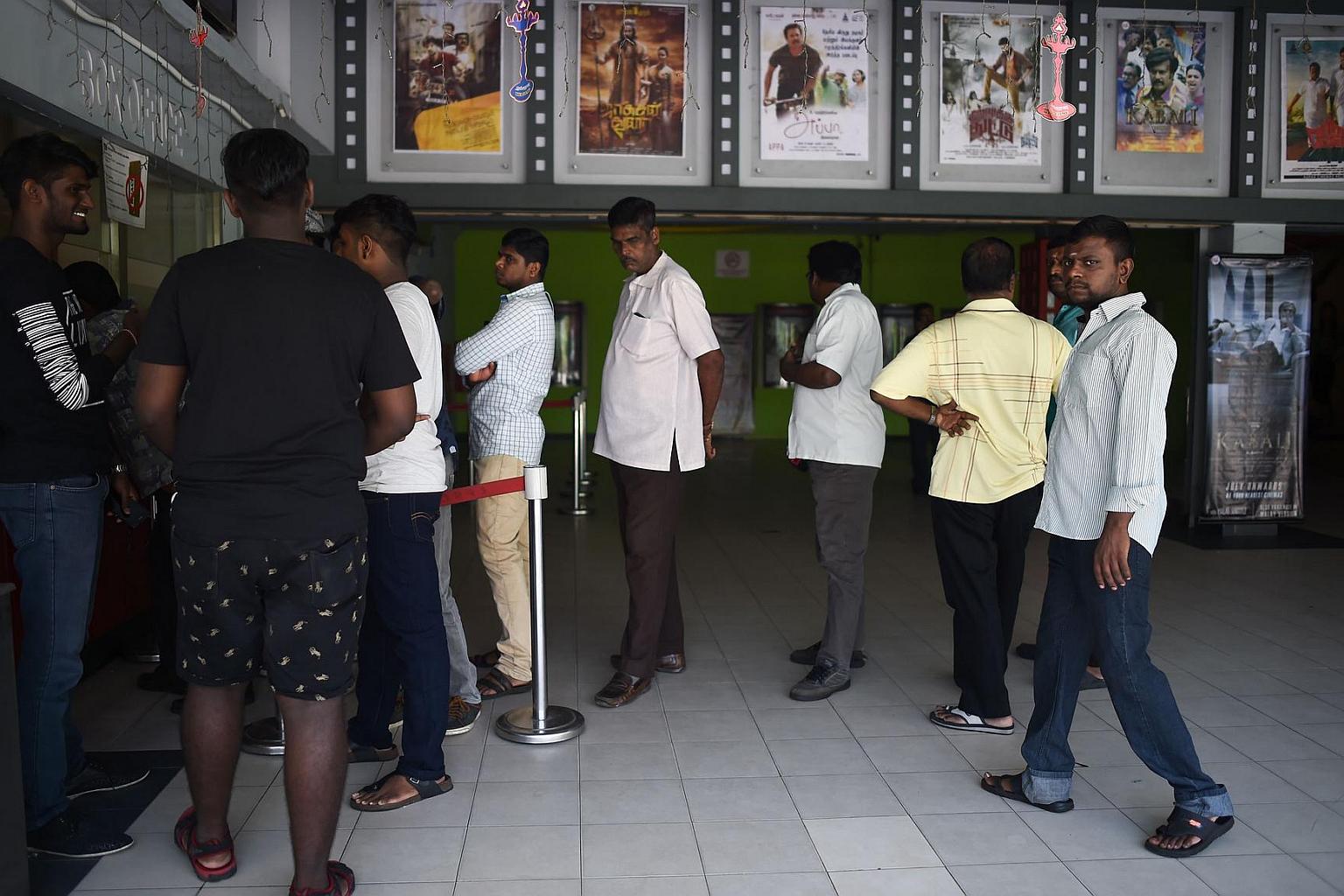Fans of hit Tamil film Kabali in Malaysia see red over over censored scenes, altered ending
Sign up now: Get ST's newsletters delivered to your inbox

People queuing up to buy tickets for the Tamil film Kabali at a cinema in Kuala Lumpur.
PHOTO: AFP
Follow topic:
PETALING JAYA (THE STAR/ASIA NEWS NETWORK) - It has only been a couple of days since Kollywood movie Kabali hit local cinemas, but the gangster flick has drawn some controversy over certain scenes.
Some people have questioned why the ending in Malaysian cinemas was different from the version shown worldwide.
Malaysian Film Censorship Board (LPF) chairman Datuk Abdul Halim Abdul Hamid said this was done in order to promote the moral lesson that crime does not pay.
"In this movie, he (Kabali) takes the law into his own hands. There must be some element of retribution.
"If you do something against the law, like killing someone or becoming a gangster or a Mat Rempit, there must be an ending that shows that this person has regretted, repented, was arrested or surrendered to the police.
"This is according to our guidelines. That is why the LPF made a request to the producer to put in a caption and note. It is basically a message that crime does not pay.
"Only then can we issue a certificate of approval," he said.
Abdul Halim also said only some scenes were shortened and some unsuitable words muted.
The movie, which opened worldwide last Friday (July 22), stars Kollywood superstar Rajinikanth.
Rajinikanth, 65, plays the role of ageing crime boss Kabaleeshwaran, who tries to protect his family and his business from enemies.
Apart from the ending, several social media users have been sharing a scene showing Taiwanese actor Winston Chao together with Malaysian actor Datuk Rosyam Nor and Rajinikanth, where the character played by Chao uses the word keling, a term considered derogatory to local Indians here.
He insults Kabaleeshwaran in the scene, saying: "You are not qualified. After all, you are just a Tamil keling. I have an idea. You should be a dog. My dog."
The word keling has been censored in the movie.
Abdul Halim said the word was taken out because it was not appropriate. "The movie also has a PG13 rating, so it is not right to have the word there," he added.

